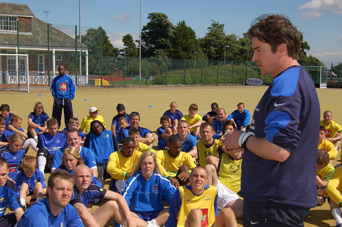In yesterday’s post I introduced some of the newer thinking around the concept of failure. Specifically, I revealed that failure is a fairly important ingredient for future success.
 As promised, today I am going to update you on what the brain does with failure. It’s actually quite fascinating to learn that how you handle failure either gives, or takes away, your brain’s ability to grow and learn.
As promised, today I am going to update you on what the brain does with failure. It’s actually quite fascinating to learn that how you handle failure either gives, or takes away, your brain’s ability to grow and learn.
Your brain is made up of millions of neurons and synapses, all with the ability to build super highways of super speed. All that is needed to build these connections is a substance called Myelin. Myelin, it’s recently been found, has the ability to grease the skids between neurons so that large pathways are formed to create mega bandwidth learning and growth, if given the opportunity. And guess what gives your brain the greatest opportunity for Myelin production?… Failure! Not just failure, but lots of failure…the more the better! And not just large doses of failure, but failure and correction, failure and correction, failure and correction…
Here’s an example:
In 1997, Soccer Coach, Simon Clifford, was so curious about what caused Brazilian Soccer to be so successful, that he temporarily moved to Brazil and lived in a dimly lit dorm-like setting to find out first-hand. What he found has changed the way many elite youth soccer teams practice, and has made Simon Clifford a very wealthy man, given that he has founded worldwide “Brazilian Soccer Schools” all over the globe.
What he found was that everyone, except the professionals, were playing a much smaller game of soccer on a small, hard court, with a heavier ball. Given the small space, the game moved quickly and frantically, with split-seconds to decide where to pass, to whom, and how. In other words, unlike American Soccer, Brazilian Soccer offers many more chances to fail and succeed in each minute of play, for each player – Every player touches the ball six times more per minute, to be exact.
When the brain experiences this incredible frequency of failure and correction, it grows Myelin like mad! Super highways are formed that can ultimately lead to amazing talent.
So what does all of this have to do with us?
I’d love some comments about how you believe this can be applied…but here is one broad idea:
As you coach or mentor others, encourage them (and place them in positions) to fail. Then have feedback sessions, then allow them to fail some more, then more feedback, etc, until they get it. And when they do, more than likely, they will thank you for the growth you enabled them…
Reference: The Talent Code, by Daniel Coyle

